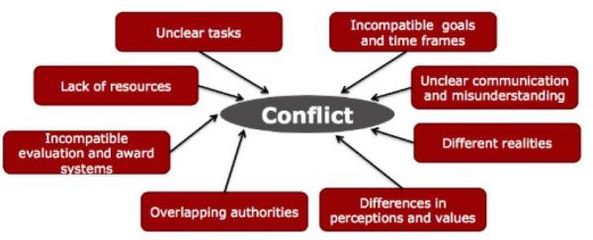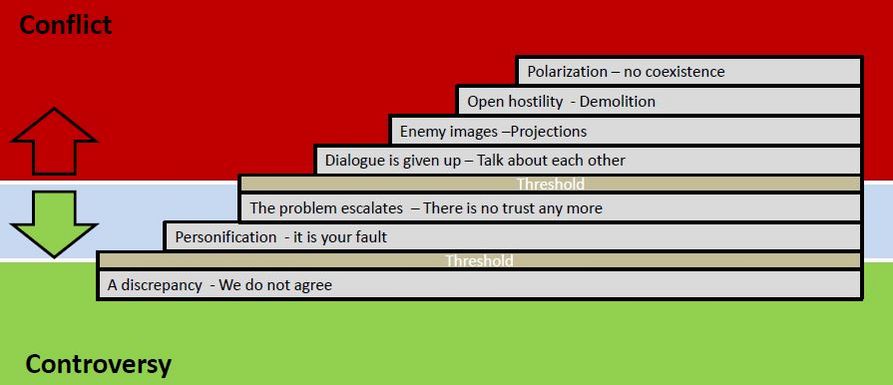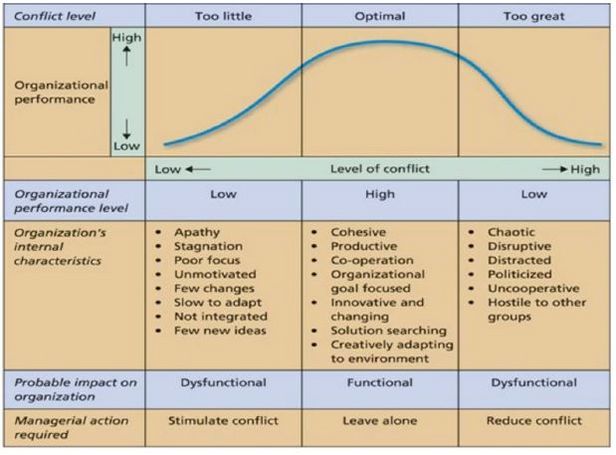Dealing with conflicts (sources, escalation, containment)
From DTU ProjectLab
Contents |
Definition of Conflict
- Conflict is an escalation of a disagreement, and is characterized by the existence of conflict behavior, in which people inolved are actively trying to damage one another.
(Nicholson, 1992)
- An interactive process manifested in incompatibility, disagreement or dissonance within or between social entities. (Rahim, 2010)
Perspectives on Conflicts
| Unitary view - conflicts are bad | Pluralist view - conflicts can be constructive if managed |
|---|---|
| Conflicts are negative and destructive | Controversy is a natural and constructive phenomena |
| The organization is a team where the members are expected to work towards a common goal | Organizations consist of different stakeholders who have different values, views, stories and goals |
| The common goal is defined by the management | Conflicts emerge as a consequence of colliding differences (controversies) that are not dealt with |
| Rational behavior is expected and is defined in accordance with company policy |
Types of Conflicts
Instrumental
Tangible issues like methods, procedures and semantics.
Approach: Problem solving to find the "best" solution
Interests
Allocation of resources like time, money, labor and space
Approach: Negotiation to find an agreement - enlarge the cake
Values
Political, moral and religious values
Approach: Dialogue to reach mutual understanding
Personal
Identity, self-esteem, loyalty, rejection etc.
Approach: Dialogue to reach mutual understanding
Examples of Sources of Conflicts in Projects
When Controversy becomes Conflict
Balancing Conflicts and Controversies in Groups
Source:
Huczynski & Buchanan (2011), Hatch (1997, p.305); Robbins (1998, p.464)


